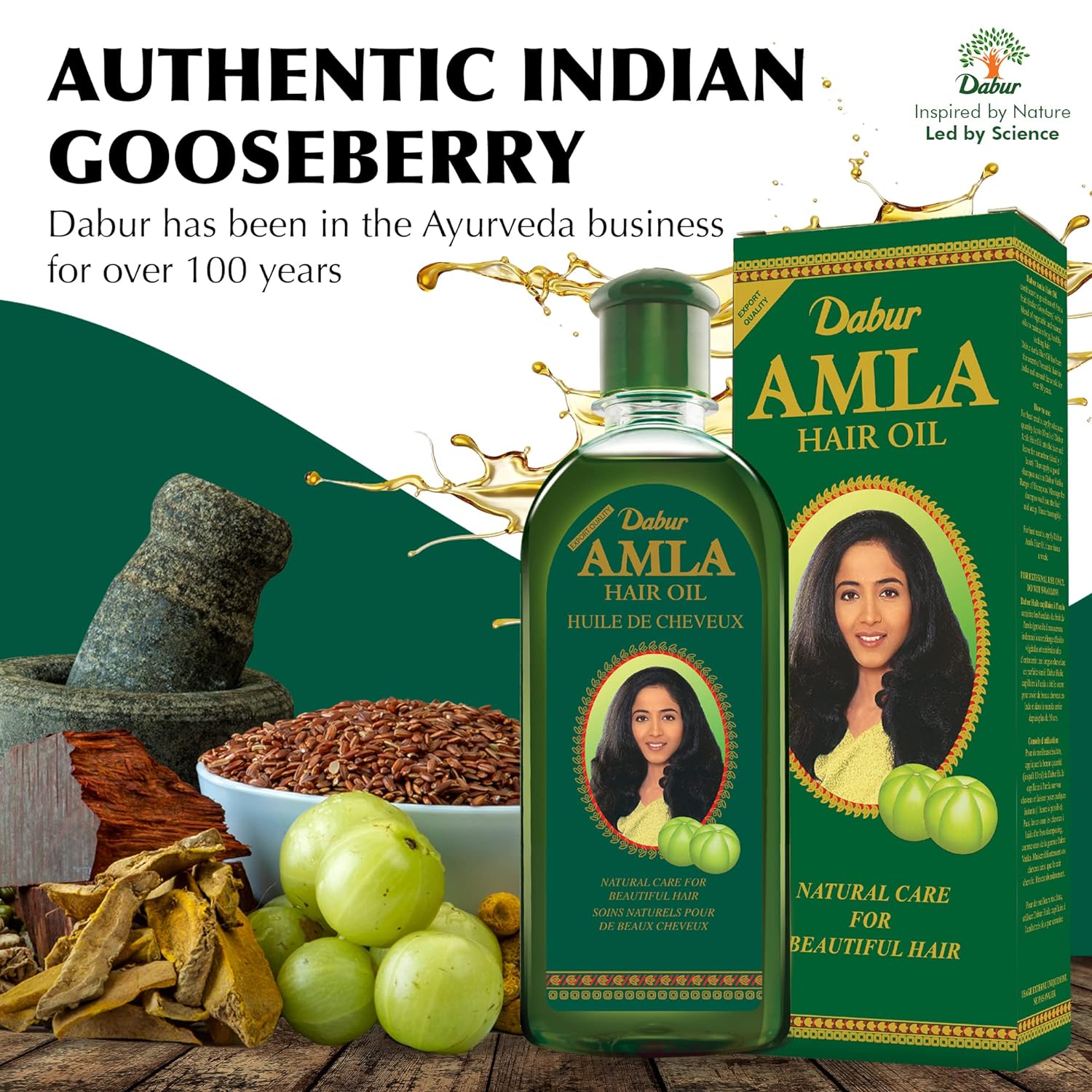Safety & Care
Clindanol: The Ultimate Guide to Clear Skin

In the quest for flawless skin, many individuals turn to various skincare products to address concerns such as acne, blemishes, and uneven texture. One such solution that has garnered attention in recent years is Clindanol. In this comprehensive guide, we will delve into the intricacies of Clindanol, exploring its benefits, usage, and effectiveness in achieving radiant, clear skin.
Understanding Clindanol
What is Clindanol?
Clindanol is a topical medication primarily used to treat acne vulgaris, a common skin condition characterized by the presence of pimples, blackheads, and whiteheads. It belongs to a class of medications known as topical antibiotics, which work by inhibiting the growth of acne-causing bacteria on the skin’s surface.
How Does Clindanol Work?
Clindano’l contains the active ingredient clindamycin, which exhibits antibacterial properties. When applied to the skin, Clindanol penetrates the pores and targets the bacteria responsible for acne. By reducing bacterial growth and inflammation, it helps alleviate existing acne lesions and prevents new ones from forming.
Benefits of Clindanol
Effective Acne Treatment
One of the primary benefits of Clindano’l is its effectiveness in treating acne. Clinical studies have demonstrated its ability to significantly reduce the number of acne lesions and improve overall skin clarity.
Minimizes Inflammation
In addition to combating acne-causing bacteria, Clindano’l also helps minimize inflammation associated with acne. This can lead to faster healing of existing blemishes and a reduction in redness and swelling.
Suitable for Various Skin Types
Clindano’l is formulated to be gentle on the skin, making it suitable for individuals with sensitive skin or those prone to irritation from other acne treatments. Its non-comedogenic formula means it won’t clog pores, making it suitable for use on oily or acne-prone skin.
How to Use Clindanol
Application Instructions
To use Clindanol effectively, follow these steps:
- Cleanse the skin thoroughly and pat dry.
- Apply a thin layer of Clindanol gel or lotion to the affected areas.
- Allow the medication to absorb fully before applying any additional skincare products.
- Use Clindanol as directed by your healthcare provider, typically once or twice daily.
Tips for Optimal Results
- Consistency is key when using Clindano’l . Stick to a regular skincare routine to maximize its effectiveness.
- Avoid applying Clindano’l to broken or irritated skin, as it may cause further irritation.
- Use sunscreen daily, as Clindano’l may increase sensitivity to sunlight.
Conclusion
Clindano’l offers a promising solution for individuals struggling with acne. Its potent antibacterial properties, combined with its gentle formulation, make it a popular choice among dermatologists and patients alike. By incorporating Clindanol into your skincare routine and following proper application techniques, you can achieve clearer, healthier-looking skin.
FAQs
1. Is Clindano’l suitable for all types of acne?
While Clindano’l is effective for many individuals with acne vulgaris, it may not be suitable for severe or cystic acne. Consult with a dermatologist to determine the best treatment plan for your specific condition.
2. Can I use Clindano’l with other acne treatments?
Clindano’l can be used in conjunction with other acne treatments, such as benzoyl peroxide or salicylic acid. However, it’s essential to follow your healthcare provider’s recommendations and avoid overusing multiple products, as this can lead to irritation.
3. How long does it take to see results with Clindano’l?
Individual results may vary, but many users report seeing improvement in their acne within a few weeks of starting Clindanol treatment. Consistent use is key to achieving optimal results.
4. Are there any side effects associated with Clindano’l?
Common side effects of Clindanol may include dryness, peeling, or redness at the application site. If you experience severe irritation or allergic reactions, discontinue use and consult a healthcare professional.
5. Can Clindano’l be used for long-term acne maintenance?
Clindano’l is generally safe for long-term use, but it’s essential to monitor your skin’s response and adjust your treatment plan as needed. Regular follow-up appointments with a dermatologist can help ensure the continued effectiveness and safety of Clindanol therapy
Safety & Care
Mixing 5W-20 and 5W-30: Is It Safe for Your Engine?

Introduction
Engine oil plays a critical role in keeping your vehicle running smoothly. It’s designed to lubricate engine components, reduce friction, and protect against wear and tear. Among the many options available, 5W-20 and 5W-30 are popular choices, each with its own set of benefits. But what if you find yourself with both types on hand? Is it safe to mix 5W-20 and 5W-30? In this article, we’ll delve into the implications of mixing these two oils and what it means for your engine’s health.
Understanding Engine Oil Viscosity
What Does 5W-20 and 5W-30 Mean?
The numbers in oil grades like 5W-20 and 5W-30 indicate the oil’s viscosity, or thickness, at different temperatures. The “5W” stands for the oil’s viscosity in winter (low temperatures), while the “20” or “30” represents its viscosity at high temperatures.
- 5W-20: This oil has a lower viscosity when cold, making it easier to flow in colder conditions. It is often recommended for newer engines for better fuel efficiency.
- 5W-30: This oil has a higher viscosity at operating temperatures, providing better protection in warmer conditions and high-stress situations.
The Role of Viscosity in Engine Performance

Viscosity affects how well oil flows through your engine. Proper viscosity ensures that the oil effectively lubricates engine parts, reduces friction, and prevents overheating.
- Lower Viscosity Oils: These flow more easily at startup and in cold conditions, but might be less effective under high heat.
- Higher Viscosity Oils: Provide better protection at high temperatures but can be thicker at startup.
How Oil Viscosity Affects Engine Longevity
Using the right viscosity for your engine ensures optimal performance and longevity. Using oil with inappropriate viscosity can lead to insufficient lubrication, increased wear, and potential engine damage over time.
Can You Mix 5W-20 and 5W-30?
Common Reasons for Mixing Oils
Drivers might mix oils for various reasons, such as running low on one type, or having different types of oil available. However, this practice can raise questions about safety and effectiveness.
Technical Feasibility of Mixing Different Viscosities
Technically, mixing 5W-20 with 5W-30 is possible because both are compatible with each other. The combined viscosity will fall somewhere between the two, but this can vary depending on the proportions mixed.
Manufacturer Recommendations and Warnings
Most vehicle manufacturers recommend using a specific oil grade for optimal performance. Mixing different grades might not align with these recommendations and could affect the oil’s performance. Always check your vehicle’s manual for the manufacturer’s guidance.
Pros and Cons of Mixing 5W-20 and 5W-30
Potential Benefits
- Flexibility: Mixing can be a temporary solution if you’re in a pinch and need to top off your oil.
- Cost Efficiency: It might be cost-effective in the short term if you already have both types of oil.
Possible Drawbacks and Risks
- Compromised Performance: The mixed oil might not offer the best protection or efficiency.
- Increased Wear: Long-term use of mixed oils could lead to increased engine wear and reduced efficiency.
Impact on Engine Performance
How Mixing Affects Lubrication
Mixing oils alters the viscosity and can impact how effectively the oil lubricates the engine. This might lead to reduced protection, especially under extreme conditions.
Potential Effects on Engine Efficiency
The efficiency of the engine could be compromised if the mixed oil does not perform as intended, potentially affecting fuel economy and overall performance.
Long-Term Consequences for Engine Health
Regular use of mixed oils might result in long-term damage or reduced engine longevity. It’s best to use the recommended oil type to ensure optimal engine health.
Best Practices for Oil Maintenance
Choosing the Right Oil for Your Engine
Always use the oil grade recommended by your vehicle’s manufacturer. This ensures optimal performance and protection for your engine.
Regular Oil Changes and Maintenance Tips
Regularly changing your oil as recommended helps maintain engine performance and longevity. Follow your vehicle’s maintenance schedule for oil changes.
Monitoring Oil Levels and Quality
Regularly check your oil level and quality. Low or dirty oil can affect engine performance and lead to potential damage.
Alternatives to Mixing Oils
Using Single-Grade Oils
Using a single grade oil as specified by your manufacturer is the best practice for engine health and performance.
Synthetic vs. Conventional Oils
- Synthetic Oils: Offer better performance and protection, especially under extreme conditions.
- Conventional Oils: More affordable but may not provide the same level of protection.
Recommended Oil Types for Different Engines
Consult your vehicle’s manual for the best oil type and grade for your engine. Different engines have different requirements based on their design and performance needs.
What to Do if You’ve Mixed Oils
Steps to Take if You’ve Mixed 5W-20 and 5W-30
If you’ve mixed oils, it’s generally recommended to replace the oil with the correct grade as soon as possible.
When to Seek Professional Advice
If you’re unsure about the impact of mixing oils or need guidance on oil replacement, consult a professional mechanic.
How to Flush and Replace Engine Oil
Flushing the engine and replacing the oil with the recommended grade ensures optimal performance and protection. Follow proper procedures or seek professional help.
Conclusion
Mixing 5W-20 and 5W-30 oils might seem like a convenient solution, but it can compromise your engine’s performance and longevity. The best practice is to use the oil grade recommended by your vehicle’s manufacturer and adhere to regular maintenance schedules. Ensuring you use the correct oil type helps maintain engine efficiency and longevity.
FAQs
What happens if you mix 5W-20 and 5W-30 oil?
Mixing these oils creates a blend with intermediate viscosity, which may not provide optimal performance or protection.
Can mixing these oils damage your engine?
Long-term use of mixed oils can potentially cause increased wear and reduce engine efficiency.
How often should you change your engine oil?
Follow your vehicle’s manufacturer recommendations, typically every 3,000 to 7,500 miles or as specified.
Is synthetic oil better than conventional oil?
Synthetic oil generally offers better performance and protection, especially under extreme conditions, compared to conventional oil.
What should you do if you accidentally mix different oil viscosities?
Replace the mixed oil with the recommended grade as soon as possible to maintain optimal engine performance and protection.
Safety & Care
Border Collies and Water: A Natural Affinity

Introduction
Border Collies, renowned for their intelligence and agility, are a breed that excels in a variety of activities. While their herding skills are well-documented, many may not realize that Border Collies also have a natural affinity for water. This article delves into the fascinating relationship between Border Collies and water, exploring their history, traits, and the benefits of water activities for these energetic dogs.

History of Border Collies
Border Collies originated along the border of Scotland and England, bred specifically for their herding abilities. These dogs were developed to manage flocks of sheep over rough terrain, making them indispensable to shepherds. Over time, their intelligence and agility became key characteristics, allowing them to excel in various roles beyond herding.
Physical Traits of Border Collies
Border Collies are known for their lean and athletic build, which contributes to their incredible agility. Their double coat, consisting of a dense undercoat and a rough outer coat, provides some resistance to water, helping them stay comfortable during water activities. This coat also helps protect them from harsh weather conditions, whether they are herding sheep or swimming in a lake.
Behavioral Traits
One of the most notable traits of Border Collies is their intelligence. Ranked among the smartest dog breeds, they are highly trainable and responsive to commands. This intelligence, combined with their natural herding instincts, makes them keen problem solvers and quick learners. These traits also contribute to their enthusiasm for water activities, as they are always eager to explore and engage in new experiences.
Why Border Collies Love Water
Border Collies’ love for water can be attributed to their natural instincts and curiosity. Water offers a new environment for them to explore, and their high energy levels make swimming and playing in water ideal activities. Additionally, water activities provide a great way for them to cool off, especially during hot weather.
Swimming and Border Collies
Introducing your Border Collie to swimming can be a rewarding experience. Start in shallow water, allowing them to get used to the sensation of being wet. Gradually encourage them to venture deeper, using toys or treats as incentives. Many Border Collies take to swimming naturally, but patience and positive reinforcement are key.
Safety Tips for Border Collies in Water
While Border Collies may enjoy water, safety should always be a priority. Monitor them closely for signs of fatigue, and ensure they have a life vest, especially in deeper waters. It’s also important to provide them with regular breaks and fresh water to prevent dehydration.
Activities Involving Water
Water opens up a range of fun activities for Border Collies. Fetch and retrieval games can be enhanced by playing in water, offering both physical exercise and mental stimulation. Dock diving is another popular activity, where Border Collies can showcase their agility and jumping skills in a competitive setting.
Border Collies and Water Herding
Interestingly, some Border Collies have been known to herd in water. This unique practice involves guiding flocks through streams or ponds, showcasing their versatility and herding prowess. Historical anecdotes highlight the remarkable ability of these dogs to adapt their herding techniques to various environments.
Training Border Collies for Water Activities
Training your Border Collie for water activities requires a step-by-step approach. Start with basic commands on land, then gradually introduce them to water. Use positive reinforcement, such as treats and praise, to build their confidence. Consistency and patience are essential for successful training.
Benefits of Water Activities for Border Collies
Water activities offer numerous benefits for Border Collies. Physically, swimming is an excellent form of exercise that builds strength and endurance without putting stress on their joints. Mentally, water activities provide stimulation and an opportunity to engage their problem-solving skills.
Challenges with Border Collies and Water
Despite their natural affinity, some Border Collies may face challenges with water. Fear or anxiety can be common, but these can often be overcome with gradual exposure and positive experiences. Preventing overexertion is also crucial, as Border Collies can sometimes be too enthusiastic for their own good.
Health Considerations
Regular health checks are important for Border Collies, especially if they frequently engage in water activities. Ear infections are a common issue due to moisture, so proper ear care is essential. Always ensure your Border Collie is up-to-date with vaccinations and parasite prevention.
Border Collies’ Water Adventures
Many Border Collie owners have fascinating stories of their dogs’ water adventures. From epic beach runs to impressive dock diving feats, these stories highlight the breed’s love for water. Some B’order Collies have even gained fame for their water skills, becoming stars in dog sports and competitions.
Conclusion
Border Collies and water share a natural affinity that can be incredibly rewarding for both the dog and the owner. With their intelligence, agility, and enthusiasm, B’order Collies are well-suited for a variety of water activities. By understanding their traits and taking appropriate precautions, you can ensure a safe and enjoyable experience for your furry friend.
FAQs
How can I get my B’order Collie to enjoy water?
Start by introducing them to shallow water and use toys or treats to make the experience positive. Gradually increase their exposure and always use positive reinforcement.
Are B’order Collies natural swimmers?
Many B’order Collies are natural swimmers, but not all. Patience and training are key to helping them become comfortable in water.
What water activities are best for B’order Collies?
Fetch games, dock diving, and swimming are great water activities for B’order Collies. They provide both physical exercise and mental stimulation.
How often should my Border Collie swim?
This depends on your dog’s health and fitness level, but generally, a few times a week is beneficial. Always monitor for signs of fatigue and provide breaks.
What precautions should I take when my Border Collie is in water?
Ensure they wear a life vest in deep water, monitor for fatigue, provide fresh water to drink, and practice proper ear care to prevent infections.
Safety & Care
The Magic of Dabur Amla Hair Oil: A Comprehensive Guide

Introduction: Discover the Secret to Luxurious Hair
When it comes to hair care, there’s a time-tested solution that has been cherished by generations – Dabur Amla Hair Oil. In this comprehensive guide, we delve into the magical properties of Dabur Amla Hair Oil and how it can transform your hair care routine.
What is Dabur Amla Hair Oi’l?
Dabur Amla Hair Oil is a nourishing blend of natural ingredients, with the key component being Amla, also known as Indian Gooseberry. This potent fruit is renowned for its myriad of benefits for hair health.
The Benefits of Dabur Amla Hair Oi’l
1. Promotes Hair Growth
The rich nutrients present in Dabur Amla Hair Oi’l penetrate deep into the scalp, stimulating hair follicles and promoting hair growth.
2. Prevents Hair Fall
Regular use of Dabur Amla Hair Oi’l strengthens the hair from root to tip, reducing breakage and preventing hair fall.
3. Conditions and Nourishes
The nourishing properties of Dabur Amla Hair Oi’l leave your hair feeling soft, silky, and manageable, while also preventing dryness and frizz.
4. Adds Shine and Luster
Say goodbye to dull and lifeless hair! Dabur Amla Hair Oi’limparts a healthy shine and luster to your locks, making them look radiant and vibrant.
How to Use Dabur Amla Hair Oi’l
- Pre-Shampoo Treatment: Massage Dabur Amla Hair Oi’l into your scalp and hair, leave it on for at least an hour, then wash it off with a mild shampoo.
- Overnight Treatment: For intensive nourishment, apply the Oi’l generously to your hair and scalp before bedtime, and wash it off in the morning for deeply conditioned locks.
- Daily Use: For regular maintenance, apply a small amount of Dabur Amla Hair Oil to your hair after washing, focusing on the ends to prevent split ends and breakage.
Conclusion: Unlock the Secret to Beautiful Hair with Dabur Amla Hair Oil
In conclusion, Dabur Amla Hair Oil is more than just a hair care product – it’s a time-honored tradition that has stood the test of time. With its nourishing formula and proven benefits, it’s no wonder that millions swear by its effectiveness. Incorporate Dabur Amla Hair Oil into your hair care routine and experience the magic for yourself!
FAQs (Frequently Asked Questions)
Q1: Can Dabur Amla Hair Oil be used on all hair types?
Yes, Dabur Amla Hair Oi’l is suitable for all hair types, from oily to dry, and can be used by both men and women.
Q2: How often should I use Dabur Amla Hair Oi’l?
For best results, it’s recommended to use Dabur Amla Hair Oi’lat least twice a week as part of your regular hair care routine.
Q3: Does Dabur Amla Hair Oi’l have any side effects?
Dabur Amla Hair Oi’l is made from natural ingredients and is generally safe for use. However, if you have sensitive skin or are prone to allergies, it’s always best to do a patch test before using it extensively.
Q4: Can Dabur Amla Hair Oi’lhelp with dandruff?
Yes, the anti-inflammatory and antimicrobial properties of Amla help in reducing dandruff and promoting a healthy scalp.
Q5: Where can I purchase Dabur Amla Hair Oi’l?
Dabur Amla Hair Oi’l is available at most major retailers, as well as online platforms, making it easily accessible for everyone.
-

 Fashion2 years ago
Fashion2 years agoExploring Purenudism: Embracing Body Positivity and Freedom
-

 Shops1 year ago
Shops1 year agoStaples Store Hours: What Time Does Staples Open And Close?
-

 Shops2 years ago
Shops2 years agoWalmart Vision Center Hours
-

 Shops1 year ago
Shops1 year agoWalgreen Pharmacy Hours: What Time Does It Open & Close?
-

 Shops1 year ago
Shops1 year agoPublix Pharmacy Hours and Locations
-

 Entertainment2 years ago
Entertainment2 years agoThothub.lol: The Digital Realm of Entertainment
-

 Business2 years ago
Business2 years agoDesigner Clothing: Making a Statement
-

 Shops1 year ago
Shops1 year agoWalmart Deli Open & Close Hours
